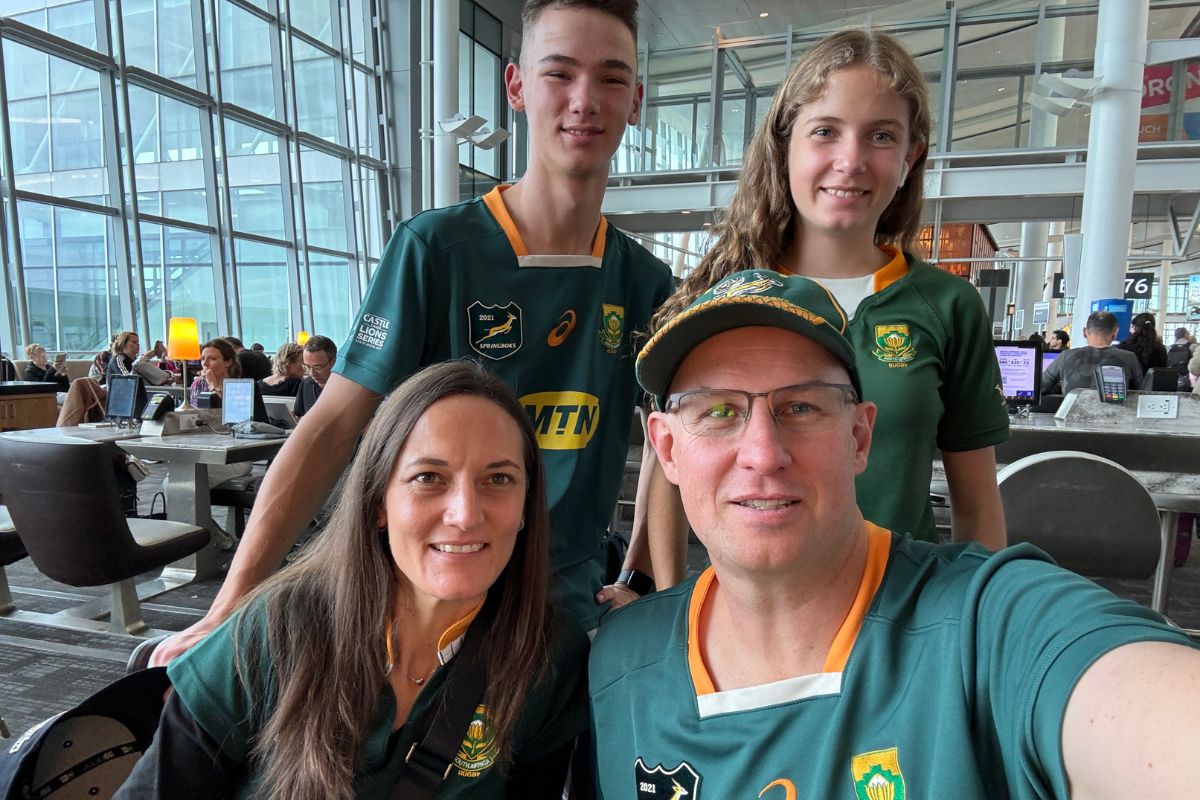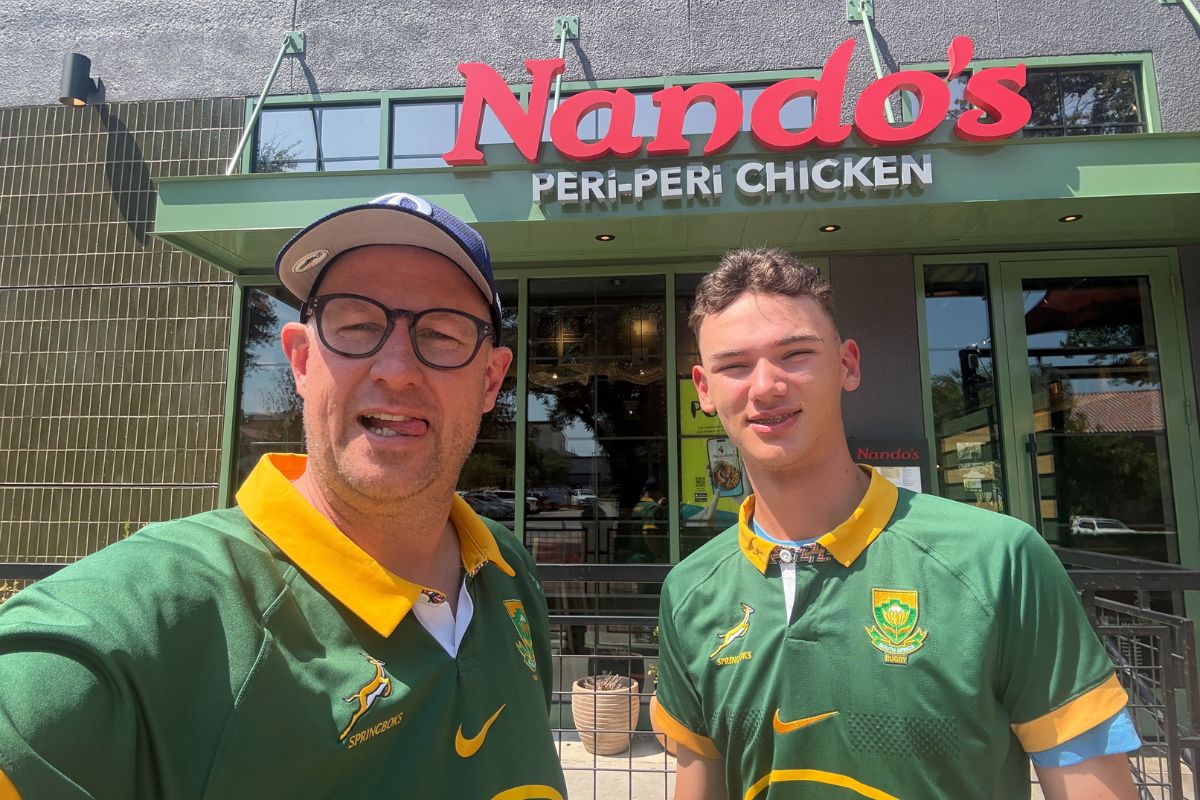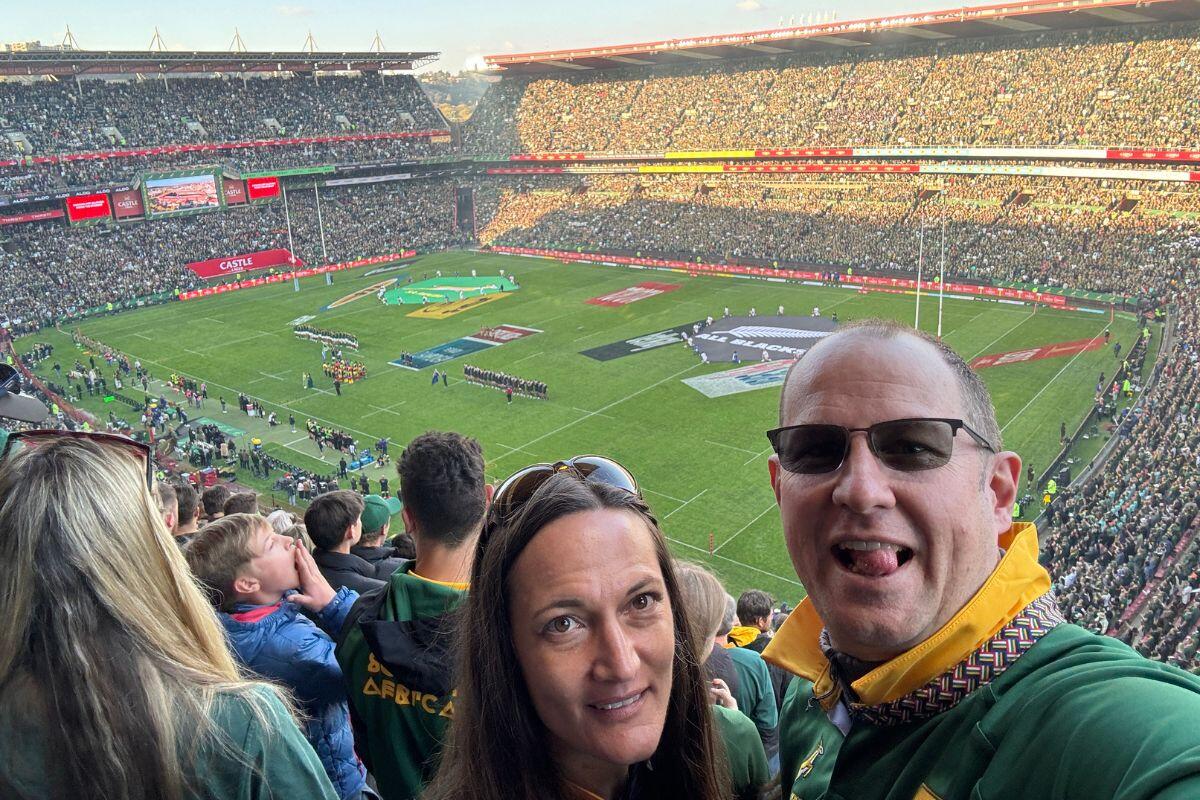
Expat Conversation: You never stop being South African
As an expat, living away from your home country sometimes insights a state of lost identity and the dilemma if you’re still “South African”.

As a fellow South African building businesses in London, I sat down with Justinus Adriaanse to talk about what it really means to start over in a new country. What began as a conversation about entrepreneurship quickly became something deeper – a discussion about resilience, belonging, and what we carry with us when we leave home.
Home isn’t a place you find – it’s something you build. After leaving South Africa to start over in Canada, entrepreneur and expat Justinus Adriaanse discovered that belonging comes from the community you create and the work that matters, no matter where you are in the world.

You grew up in Pretoria, right? Tell me about those early days.
Yeah, in a pretty typical middle-class Afrikaans home. My dad was an entrepreneur, my mom looked after us. It was a loving household that gave me this deep work ethic and this itch to build something of my own. By South African standards, I had a privileged upbringing, but even then, the path to where I am now wasn’t exactly obvious.
What I’ve come to understand is that access changes everything. Access to opportunity, to networks, to people who believe in you. That’s become a central theme in most of my work now.
So you built Private Property and had success there. But then you did something unexpected – you walked away to go skiing?
laughs Yeah, we fell hard for skiing while building Private Property. When I left, we realised this was probably our only shot to just… go live in a ski town and ski every day. So we did. Two winters in Canada.
That’s quite a pivot. What happened between those winters?
I decided I wanted to learn to code. So I started over – literally went back to the beginning and taught myself. It was humbling, going from CEO to what they called a “code monkey” in the press. But it was exactly what I needed.
And after the second winter?
I wanted more skiing, obviously. But I also wanted to see if I could actually build a business in a completely new country. Around that same time, I helped start WeThinkCode_ back home, which has become one of the things I’m most proud of.
Let’s talk about that – starting a business in Canada. What was that like?
Starting a business is hard enough anywhere. But doing it in a new country? There were days I’d wake up and think, “What have I done?” No one knows your name. No one cares about what you built back home. You’re just another immigrant trying to make it work.
I remember sitting in coffee shops, hearing people speak in ways I didn’t quite understand, references I didn’t get. You realise how much of business is built on shared context, shared stories. I didn’t have any of that.
But that’s also what made it one of the most humbling and transformative experiences of my life. You strip away everything familiar and find out what you’re really made of.
I know exactly what you mean. When I first moved to London, I had similar moments – sitting in meetings where everyone understood the cultural references except me. That sense of being perpetually half a step behind. How did you push through those early days?
You just keep showing up, really. And you find your people. That’s everything.

How did you find your tribe?
Entrepreneurs’ Organization – EO – has been a lifeline. I’ve been a member for 15 years now, across five chapters and six forums. EO Canada Bridge gave me community when I needed it most. When you’re starting over in a new place, having people who understand what you’re going through is everything.
More recently, The Lekker Network has become another source of connection. It’s a global community for South Africans abroad, and it’s reminded me how much we carry with us, no matter where we go.
The expat networks really do become lifelines, don’t they? What was your biggest challenge?
pauses Ten years ago, my daughter was diagnosed with juvenile dermatomyositis. She was four years old and couldn’t climb a single stair.
You know, you move to a new country, you’re building something, you think you’ve got it all figured out. And then your child gets sick. Really sick. And suddenly nothing else matters.
We were in a foreign country, still finding our feet, and now we’re navigating a healthcare system we barely understood, in a crisis we never saw coming. No family nearby. No support network we’d built over years. Just us, trying to hold it together for her.
We did three 14-hour drives to Vancouver in six weeks for her treatment. Fourteen hours there, appointments, fourteen hours back. You sit in those hospital waiting rooms, surrounded by other parents who look just as terrified as you feel, and you realise how alone you can be, even when you’re surrounded by people trying to help.
But here’s the thing – those doctors, those nurses, the other families we met along the way, they became our people. They showed up. The system, imperfect as it was, tried to serve everyone, not just those who could afford it. That mattered more than I can express.
Today, she’s a healthy teenager. She plays sport, lives a full life, procrastinates on her chores like any normal kid. smiles When I look at her now, I’m just… grateful. Deeply, profoundly grateful.
That experience changed how I think about everything. About community. About what it means to build systems that work for everybody, not just for people like us. Because when you’re the one who needs help, you realise how much it matters that someone designed the system to catch you.
That must have been terrifying. Being so far from home when something like that happens… I can’t imagine. It sounds like that experience fundamentally shifted how you see the world?
Completely. It made me think differently about South Africa, about what we’re trying to build there, about responsibility.
It sounds like you’re coming full circle in some ways.
After this whole experience of starting again, I feel this growing pull to give back. The longer I’m away, the more South African I feel, if that makes sense. You carry your home with you – the good and the complicated. Through WeThinkCode_ and ForAfrika, and now with my podcast Winning the Away Game, I’m trying to figure out how those of us who’ve left can still help build the country we love, help build a country that works for everybody – we either build a country that works for everybody or we will have a country that works for nobody.
What’s the podcast about?
It’s called Winning the Away Game, and it’s about how South Africans abroad find purpose and belonging when everything around them is unfamiliar. It’s about rebuilding identity, connection, and meaning while living far from home, and how we can take what we learn out here and use it to help build a country that works for everybody.
So what have you learned about home through all of this?
That home isn’t a place you go back to, it’s something you keep building. It’s in the people you connect with, the work you do that matters, and the bridges you help others cross.

I had to leave South Africa to really understand how deeply connected I am to it. Now, everything I do, through ForAfrika, WeThinkCode_, and The Lekker Network, is about coming full circle: taking what I’ve learned abroad and using it to expand access and opportunity back home. That, to me, is what “winning the away game” really means.
If you would like to share your expat story, email info@sapeople.com
